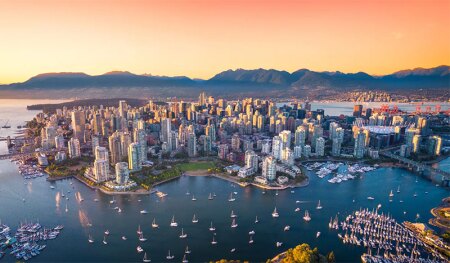Given the pressing challenges real estate is facing globally in advancing building decarbonization, ULI is honored to announce two District Councils and three National Councils have been selected to participate in the third Net Zero Imperative (NZI) Cohort.
Thanks to a generous donation from Owen Thomas and additional gifts from Lynn Thurber, Joe Azrack, Franz Colloredo-Mansfeld, and Dan Cashdan, the Net Zero Imperative began in the summer of 2021 as a 5-year cohort program that sponsors ULI technical assistance panels in localities to help the public and private sector co-develop a pathway to decarbonization. Local champions remain focused on encouraging implementation and follow-through of the resulting recommendations. Participants collaborate in a global cohort that shares best practices and problem-solves together. From those local efforts, ULI research staff pull key themes to create global resources that help the wider real estate industry decarbonize.
“There’s never been a more important time for collaboration between the public and private sectors on building decarbonization. This newest Net Zero Imperative cohort brings together a broad range of topics to advance real estate’s net zero agenda in a meaningful and impactful way.” Marta Schantz, Co-Executive Director of the ULI Randall Lewis Center for Building Performance. NZI Cohort 3 participants will lay out actionable steps for local real estate owners, public sector leaders, and wider stakeholders to reduce carbon emissions in the built environment to reach net zero:
ULI British Columbia (Vancouver)
Decarbonizing older below-market buildings is key to an electrified, equitable, and stable housing market. ULI British Columbia is collaborating with building owners to understand how to track life-cycle embodied carbon in retrofitting key affordable housing stock. They will also investigate how to meet emerging public-policy initiatives relating to carbon reduction and climate change. Stakeholders from non-profits, private companies, and the public sector will be brought together to consider the future of housing and embodied carbon.
ULI Germany (Berlin)
Engage through a two-phase project as part of the ULI Europe C Change program. In the first stage, the focus was on identifying assets in Berlin that could potentially be stranded, based on a common methodology developed by the ULI C Change program that assesses transition risks as part of real estate valuations. In the second phase, the aim is to identify potential solutions to decarbonize these buildings in close collaboration between all stakeholders including the private and public sectors.
ULI East China (Shanghai)
The local industry in general lacks reliable data on embodied carbon counts for building materials, and also, the industry as a whole has limited understanding of how to implement embodied carbon estimation for new development and remodeling projects. The ULI East China’s NZI program will bring together important stakeholder groups including developers, building material manufacturers, construction companies, and service providers, and identify areas where improvements are needed to enhance transparency, reliability, and efficiency of embodied carbon estimation. The intention is to promote best practices for reducing embodied carbon through improved building design, increasing awareness of embodied carbon among building material manufacturers and real estate development professionals, and substitution of high embodied carbon building materials with low embodied carbon materials, where feasible.
ULI Los Angeles
Build upon two of the main recommendations from ULI-LA’s initial NZI TAP, which were to: explore opportunities to connect “satellite” district cooling plants to the existing Bunker Hill Plant; and, to bring down costs by piggybacking on existing subterranean infrastructure projects. The project team will explore both recommendations, engaging with LA METRO and stakeholders from DTLA’s Little Tokyo community to explore the feasibility of developing a district cooling plant that would serve Little Tokyo and utilize METRO subway tunnels to route piping to additional areas.
ULI Shenzhen
The project aims to promote the Shenzhen Net Zero Imperative TAP report and enhance sustainable community development in the Greater Bay Area (GBA) by extending the influence of ULI NZI. This will be achieved through activities such as decarbonization tech tours, ESG tech roundtables, and showcases to empower the decarbonization tech ecosystem, connect stakeholders, and attract tech firms to the GBA. These initiatives are planned for the next 12 months in response to China’s “dual carbon target” and its impact on the urban development industry.
Find out more about the NZI program on ULI’s website here and by watching a program overview video here. Building on the past successes of the first and second ULI Net Zero Cohorts, ULI is also proud to continue to expand the ULI Net Zero Compendium webpage with valuable resources on the journey to net zero.







